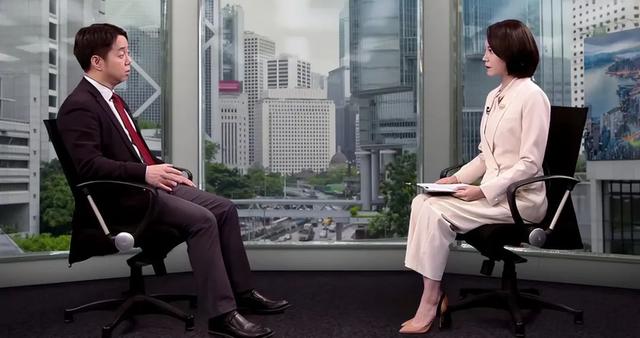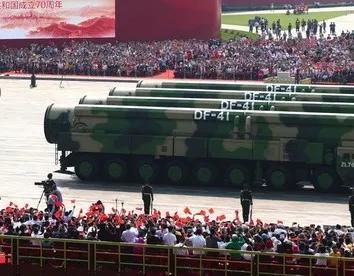马丁•雅克:从非西方角度看待俄乌冲突
本文大概2400字,读完共需6分钟
作者马丁·雅克系英国著名学者、中国问题专家、中国人民大学重阳金融研究院外籍高级研究员,本文刊于4月12日环球网。
从全球而非狭隘的欧洲或西方的角度看待乌克兰战争,可以提供一个非常不同的视角。占世界人口大多数的发展中国家,对这个问题的看法明显与欧洲不同。

西方大多数人的假设是,除了少数例外,全世界都强烈反对俄罗斯在乌克兰的军事行动。西方本身,包括大多数欧洲国家,似乎都在同声谴责。但在世界范围内,情况要复杂得多。在3月3日的联合国大会上,虽然有141个国家谴责俄罗斯并呼吁立即撤军,但有35个国家弃权,5个国家投票反对。在最近将俄罗斯排除在联合国人权理事会之外的投票中,93个国家投票赞成,58个国家弃权,24个国家反对。
尽管许多国家显然对俄罗斯的行动深感担忧,但人们也普遍担心美国的立场。最有趣、也可能是迄今最重要的案例是印度。考虑到印度在过去二十多年里的西化,人们可能认为印度会强烈支持美国。但恰恰相反,印度一直是美国角色的主要批评者,同时保持对俄罗斯的支持态度。在联合国的重大表决中,印度一直投弃权票。由于仅中国和印度就占全球人口的38%,这表明占世界人口近一半左右的政府对美国的立场深感不安。
原因有两个方面。首先,包括印度在内的许多发展中国家反对这样的观点,即一个国家,在这种情况下是乌克兰,可以自由地为所欲为,即使它威胁到另一个国家的安全,在这种情况下是俄罗斯。第二,将制裁武器化作为新的战争形式被广泛认为是一种非常消极的事态发展方向。基于最含糊的措辞,美国已经假定有权以任意方式对任何它认为继续与俄罗斯进行贸易的国家采取行动。然而,发展中国家最重要的优先事项是贸易权和接受来自任何地方投资的权利。美国的制裁方式威胁到了这类自由。令人吃惊的是,绝大多数发展中国家都拒绝对俄罗斯实施制裁。在亚洲,只有日本、韩国和新加坡同意实施这些制裁。
印度与俄罗斯的关系可以追溯到20世纪50年代。印度认为,俄罗斯是一个非常重要的经济伙伴、主要的武器供应商和长期的朋友。尽管美国和英国等其他国家大力游说,印度仍拒绝支持美国的对俄立场。这将被证明是一个孤立事件,还是标志着印度对美态度的重大转折?印度对其外交政策的评论已经发生明显转变,许多人质疑印度是否与美国走得太近,以及是否应该回到更传统的中立立场。

我认为,印度未来在世界上的重要性被严重忽视了。到2050年,如果不是更早,中国与印度的关系将是最重要的关系之一,甚至可能就是最重要的。不幸的是,自从1962年边境冲突以来,中印两国关系一直不稳定。这有很多原因,包括它们巨大的文化差异,以致它们很难相互理解。毋庸置疑,最具争议的问题是两国之间长期存在的边界争端。如果中印能够找到缓和目前紧张局势的方法,或者更好的是,找到一种方法来达成最终解决方案,那么中印建立更密切关系的最大障碍就将被消除。
从全球而非狭隘的欧洲或西方的角度看待乌克兰战争,可以提供一个非常不同的视角。占世界人口大多数的发展中国家,对这个问题的看法明显与欧洲不同。它们对美国的反应同样担心,如果不是更担心的话。人们非常关注这场战争拉近了美国和欧洲的距离,却很少关注印度与美国的距离越来越远,以及这对未来可能意味着什么。甚至可以想象,这可能导致中印俄之间有限形式的合作。
以下为英文版
India’s distancing from US over Ukraine crisis has deeper implications: Martin Jacques
By Martin Jacques
The overwhelming assumption in the West is that the world, with a few exceptions, is strongly opposed to Russia's military actions in Ukraine. The West itself, including the great majority of Europe, seems to be of one voice in its condemnation. But worldwide the picture is rather more complicated. In the UN General Assembly on March 3, while 141 countries condemned Russia's invasion and called for an immediate withdrawal, 35 countries abstained and five voted against. In the recent vote to exclude Russia from the UN Human Rights Council, 93 countries voted in favour, 58 abstained and 24 were against.

While there are clearly deep misgivings on the part of many countries about Russia's actions, there is also widespread concern about the stance of the US. The most interesting, and potentially by far the most significant case, is India. Given India's westward drift over the last 20 years and more, it might have been expected that India would strongly back the US. But, on the contrary, it has been a major critic of the US's role while maintaining a supportive attitude toward Russia. In the major UN votes it has consistently abstained. As China and India alone between them represent around 38 percent of the global population, this suggests that governments accounting for around half the world's population are deeply uneasy about America's position.
The reason is twofold. First, many countries in the developing world, including India, reject the idea that a country, in this case Ukraine, is free to do whatever it likes even if it threatens the security of another country, in this case Russia. Second, the weaponization of sanctions as a new form of warfare is widely viewed as a very negative development. The US has assumed the right, based on the vaguest of wording, to act in an arbitrary manner against any country that it deems to have continued trading with Russia. The overriding priority of developing countries, however, is the right to trade and receive investment from wherever it might come from. The American approach to sanctions threatens this freedom. It is striking that the great majority of countries in the developing world have refused to impose sanctions on Russia. In Asia, only Japan, South Korea and Singapore have agreed to implement them.
India's relationship with Russia goes back to the 1950s. It regards Russia as a very important economic partner, the major supplier of its arms, and a long-standing friend. Despite heavy-duty lobbying by the US, and from others such as the UK, India has refused to support the US position on Russia. Will this prove to be an isolated incident, or could it signal a major turning point in India's attitude toward America? Already, there has been a marked shift in Indian commentary on its foreign policy, with many questioning whether India has grown too close to the US and whether it should return to its more traditional stance of neutrality. The most dramatic illustration of its westward drift has been its membership of the Quad, along with the US, Japan, and Australia, although it has declined to participate in its naval patrols.
India is already the world's third largest economy. A research by Standard Chartered forecasted that during the 2030s India is likely to overtake the US to become the second largest. India's future importance in the world, I would argue, has been seriously neglected in China.
By 2050, if not very much earlier, it will be abundantly clear that China's relationship with India is one of its most important, perhaps even the most important of all. Unfortunately, ever since the border conflict in the 1962 clash, the two countries have witnessed an uneasy and troubled relationship. There are many reasons for this, including the large cultural distance between them, such that they find it difficult to understand each other. Undoubtedly the single most divisive issue is the long-running border dispute between the two countries. Although China pays only limited attention to the matter, India has been obsessed about it ever since they received a bloody nose in the 1962 clash. If the two countries could find a way of cooling the present tensions, or, even better, finding a way of reaching a final settlement, then the biggest single obstacle to a much closer relationship between the two countries would be removed. This should be a major strategic priority for the Chinese leadership.

Taking a global rather than narrowly European or Western view of the Ukraine war offers a very different perspective. The developing world, home to the great majority of the world's population, has a markedly different take on it to that of Europe. It is as much, if not more, concerned about the US response than Russia's actions. Much attention has been paid to the fact that the war has brought the US and Europe much closer together, but all too little attention has been given to India's growing distance from the US and what this might mean for the future. It is even conceivable that this might lead to limited forms of cooperation among China, India and Russia.




// 人大重阳
///
RDCY
中国人民大学重阳金融研究院(人大重阳)成立于2013年1月19日,是重阳投资向中国人民大学捐赠并设立教育基金运营的主要资助项目。
作为中国特色新型智库,人大重阳聘请了全球数十位前政要、银行家、知名学者为高级研究员,旨在关注现实、建言国家、服务人民。目前,人大重阳下设7个部门、运营管理4个中心(生态金融研究中心、全球治理研究中心、中美人文交流研究中心、中俄人文交流研究中心)。近年来,人大重阳在金融发展、全球治理、大国关系、宏观政策等研究领域在国内外均具有较高认可度。
微信号|rdcy2013
新浪微博|@人大重阳
我知道你“在看”哟~





















评论